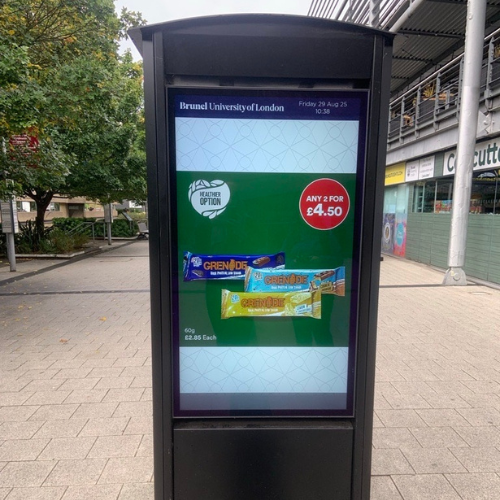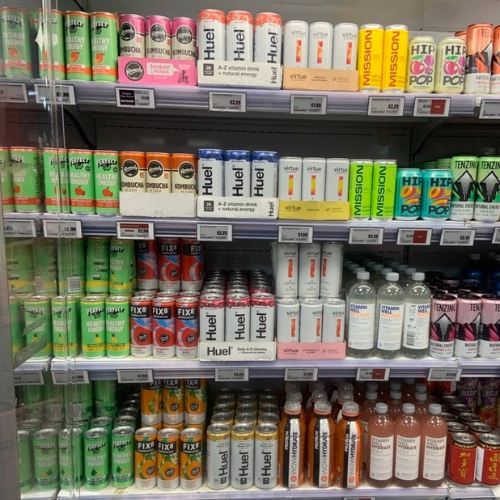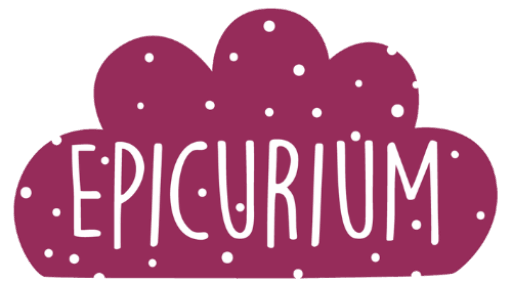
How do you cater for a globally diverse student shopper base who are also constantly on the lookout for the latest on-trend products? That’s the relentless challenge for the university-owned store, Costcutter Brunel.
Run and operated by Arnaud Leudjou, head of retail, and Sadia Shah, retail manager, the store caters for the 4,500 students living on campus and a grand total of 16,000 students, visitors and staff at the university – all from a challenging 1,600sq ft store footprint.
But by working with suppliers and getting involved with student groups, they’ve gone from strength to strength.
“When I first started around eight years ago, we were aware a significant portion of our shopper base was from China, so we dedicated around three to four bays to authentic products from the region,” Shah explains.
Shah says that interest in world food and drink products has only increased, as the number of international students has grown.
“It’s always been quite strong, but now we’re getting students from India, Pakistan and other countries where Asian cuisines are a big deal,” she says. “It’s made us more aware of different cultures, as well as helped us with direction when we’re looking for new suppliers.”
Meeting the ‘vibe’ of your demographic
Since taking over, Shah and Leudjou have worked hard to improve the store and “meet the vibes of their demographic”.
“This started with expanding the store where we could. We also joined Costcutter to refresh the external fascia,” she says.
Once the redevelopment was completed, Shah and Leudjou worked with the university to find the right suppliers, and Epicurium fit the bill.
“As a university-owned store, we have certain practices in place to approve new suppliers, but luckily Epicurium was already on the list. They’re great at bringing new trends to our attention and any new lines they think we’ll be interested in.”
Huel is an example of a brand that the store was able to capitalise on before the boom.
“Huel is a big one for us. It’s a product that has increased massively from a sales perspective in the past few years,” Shah says. “This is why Epicurium is so good. They have products that aren’t as popular right now, but are on the way there. It’s helped us stay ahead of future trends.”
A key part of their sales strategy is offering monthly promotions, some of which are facilitated by Epicurium.
“We asked them to inform us of any upcoming promotions a week or so before they launch to help us plan and ensure we have the right stock levels, which is great for when we’re really busy,” she says.

The promotions involve discounts and multibuys, for example, buy-three-get-one-free. “The promo cycle allows us to keep some prices low, which is incredibly important with students, who tend to live on a budget,” Shah says.
The store has two promotional bays to maximise sales, one by the till and the second by the entrance. Each promotion is advertised on a single media screen at the front of the store.
“Being students, they’re very tech-focused, so traditional paper PoS wouldn’t be as engaging. Epicurium helps by sending us digital assets – and we don’t use wobblers as we invested in electronic shelf-edge labels two years ago,” she continues.
“The media screen offers them a quick animated advertisement, but it also meets the university’s sustainability goals by reducing the paper we use.”
In summer, Shah and Leudjou change their range again to suit visiting students. Many are under 16 years old, and they stay at the university for around two weeks.
“Our range changes in that we pick more age-appropriate products, so we remove any kombucha products that contain CBD or are high-performing drinks, for example,” Shah says. “We switch to more ‘fun’ brands, like Chulo, which is a Japanese canned drink.”
Going beyond your product offering

While sales are of course the focus, Shah and Leudjou say they have another supporting goal: To enhance the student experience.
They do this by offering sampling during Fresher’s Week, as well as freebies for visiting parents and students during graduation.
“Epicurium linked us up with suppliers who come in during Fresher’s Week, which is when the true student experience really begins,” she says. “These brands come with samples, activities and games for the students to participate in,” she says. “It creates a strong connection and encourages them to try new things.”
Shah says that while sampling is great, the event and opportunity is about driving engagement with the students and staff. That means it must be fun.
“We’ve had suppliers bring in rowing machines and spin-the-wheel competitions. It breaks down barriers and encourages students to talk to us,” she says.
Some of their questions are around products’ sustainability credentials or whether it’s Fairtrade. Many are also interested in understanding where the ingredients are sourced from.
It’s a similar approach for the university’s graduation ceremonies, just without the games and activities. “Parents are in their best dressed, so playing games is probably at the bottom of their list, so we stick to freebies, samples, or a welcome drink,” Shah adds.
“Parents won’t tend to buy mainstream energy drinks, for example, so we stock cleaner drinks or smoothies that will appeal to them more. Sampling helps them find the right option for them.”
By quickly responding to external changes and their shoppers’ evolving needs, Leudjou and Shah have created a store that has become a destination for its relevant and on-trend range.
Why choose Epicurium
For me personally, Epicurium has really helped and listened to everything we want. They aren’t pushy, and if we tell them something doesn’t work, they listen to us. We’ve had products that weren’t popular at first, but then became popular, so we’ve been ahead of the curve – and that’s because of Epicurium.
They’re also good at supporting small businesses, not just big brands, which is what we like. That’s what helps us create a niche in-store and sets us apart from supermarkets.





